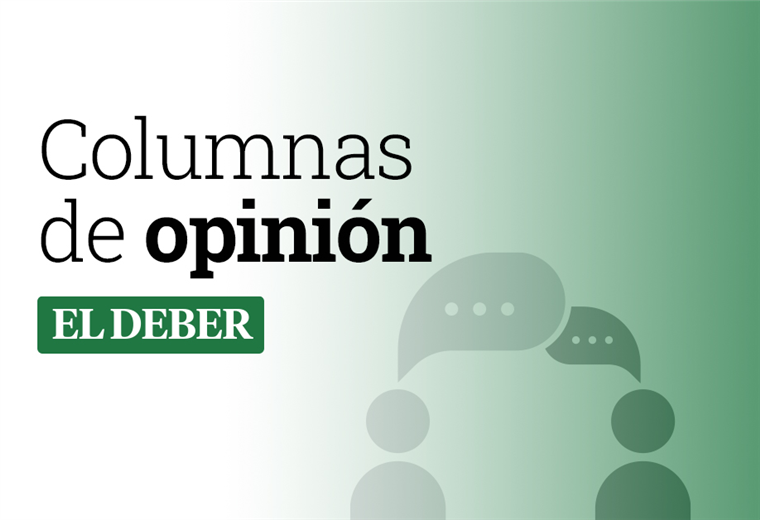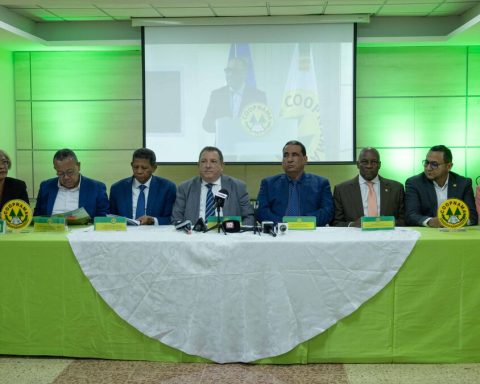November 10, 2024, 4:40 AM
November 10, 2024, 4:40 AM
In the last week, various economic events have highlighted the adoption of Creole cunning tactics, data manipulation and creative accounting as common tools in the economic policy of the Bolivian Government. Apparently, faced with the inability to comprehensively address the serious structural problems of the economy, the Government has chosen to implement temporary and palliative solutions that, at best, alleviate only the symptoms of a deeper economic crisis.
As Paul Krugman, Nobel Prize winner in economics, indicates, economic policies based on superficial adjustments are often unsustainable in the long term, since they do not address the true causes of the problem, but simply delay the inevitable consequences of a structural crisis.
According to the National Institute of Statistics (INE), October inflation registered an increase of 1.64%, reaching a cumulative total of 7.26% in the first ten months of the year. Food inflation, in particular, was 3.6% in October, while year-on-year food inflation is already at 9.68%. This level of inflation is considerably high, especially in a context where salaries have remained static and the purchasing power of consumers has been reduced.
However, the Government has attributed 1.45% of October inflation to recent lockdowns, suggesting that “real inflation” would be just 0.19% in the absence of these external factors. This statement seems to dangerously simplify the reality of the structural factors behind inflation, which go far beyond cyclical events. As Blanchard and Fischer point out, high and persistent inflation is usually a symptom of macroeconomic imbalances accumulated over time and cannot be attributed solely to specific incidents.
Since the beginning of 2023, Bolivia has experienced a marked shortage of foreign currency. This phenomenon is due, in part, to the decrease in hydrocarbon exports, one of the country’s main sources of income. Added to this is the lack of foreign direct investment and the limited availability of international credit in dollars, factors that have considerably reduced the flow of foreign currency. Although remittances have continued to enter the country, their volume is insufficient to compensate for the decrease in other sources of dollars. This situation has contributed to the emergence of a parallel market, in which the dollar exchange rate has reached Bs 10.5, a figure significantly higher than the official exchange rate. As Milton Friedman points out in his analysis of inflation expectations, when economic agents anticipate a depreciation of the currency and loss of purchasing power, markets react, generating additional pressure on the exchange rate and domestic prices.
The increase in import prices (around 50% in some cases) is not due so much to external factors, such as the increase in prices in the countries of origin, but to the implicit devaluation that the parallel market imposes on the exchange rate. This informal devaluation generates an internal inflationary dynamic that is reflected in the increase in prices of imported goods. The theory of purchasing power parity suggests that, in open economies, variations in the exchange rate can be passed on to domestic prices, especially when the country depends on imports to satisfy the demand for certain products.
The shortage of foreign currency has also made fuel imports difficult, which has negatively impacted production and transportation chains. The lack of gasoline and diesel has increased costs at different stages of the value chain, making final prices more expensive. These inflationary effects were observed before the recent blockades, which reinforces the idea that the inflationary crisis is more than a short-term phenomenon. In addition, factors such as climate change and forest fires have affected food supply, further restricting the availability of certain products and therefore raising prices.
The political situation aggravates the problem. The dispute between Arce and Morales has created instability that deteriorates confidence in the economy and raises inflationary expectations, generating a “distributive struggle” in which different sectors try to protect their purchasing power through price adjustments. This dynamic is consistent with the theory of adaptive expectations, which postulates that economic agents adjust their expectations based on past experiences, generating vicious circles in contexts of uncertainty and lack of credibility of economic authorities.
The Government has responded by increasing monetary issuance to finance the fiscal deficit. The economic literature has widely demonstrated that this type of unsupported monetary expansion tends to fuel inflation, especially in economies where confidence in the currency is low. Sargent and Wallace highlight in their theory of fiscal dominance that, when a government faces financing pressures, the expansion of the money supply becomes a tool to cover the deficit, which inevitably results in an increase in prices.
Economic policy in general has been inconsistent and erratic. An example is the reduction of tariffs to make certain imported products cheaper, a measure that, although it reduces the cost of some goods, does not solve the root of the problem. In addition, the decisions of the Central Bank have generated uncertainty, such as the recent modification of the international reserve management regulations, in which it was established that gold reserves will be verified only on specific dates. This provision, although reversed days later, raised doubts about the stability of the country’s reserves. The lack of independence of the Central Bank weakens its credibility, which is especially problematic in a context of economic instability. It should be noted that an independent central bank tends to have greater capacity to manage expectations and reduce inflation, given that its decisions are not subordinated to short-term political interests.
In conclusion, Bolivia faces a complex inflationary dynamic characterized by structural elements that the government has chosen to ignore. The official narrative that blames the blockades is an insufficient and simplistic explanation; it is an alibi that is not supported by the facts of reality. Strictly speaking, inflation responds to multiple factors: from external imbalances to expansive monetary and fiscal policies, through weak institutionality in the management of reserves. Institutions are key to economic development, and when these institutions are weakened or manipulated, economic growth and stability are compromised.
The current situation requires a comprehensive review of the country’s economic policy, addressing the structural imbalances that have led to the present crisis. In particular, an exchange rate policy that reflects the reality of the market and a fiscal policy that reduces dependence on the monetary issue as a source of financing is required. Likewise, restoring the independence of the Central Bank is crucial to restore credibility and control inflationary expectations. Without these reforms, the country will remain trapped in a cycle of temporary adjustments that, although they may offer immediate relief, do not solve the fundamental problems facing the Bolivian economy.
















